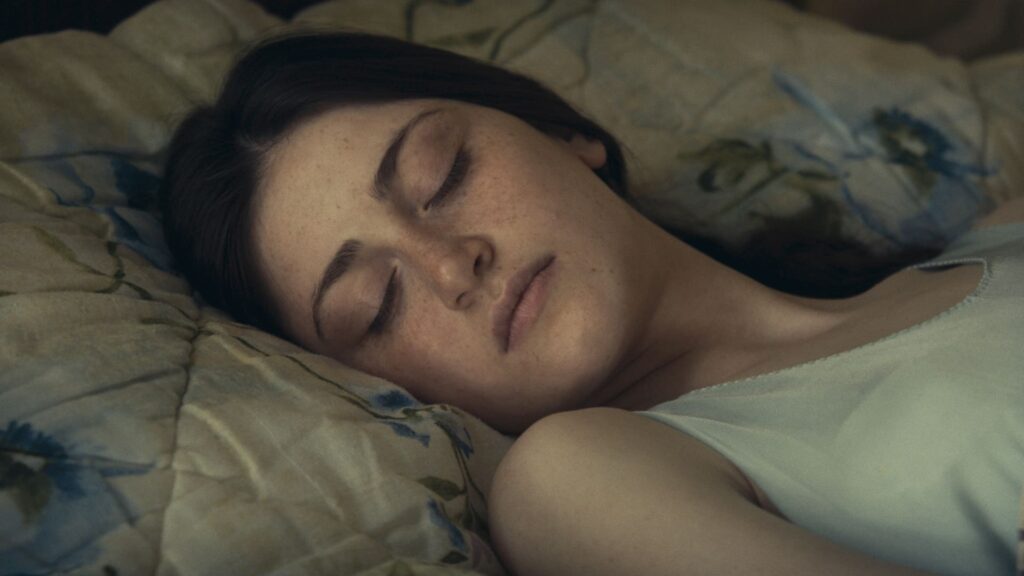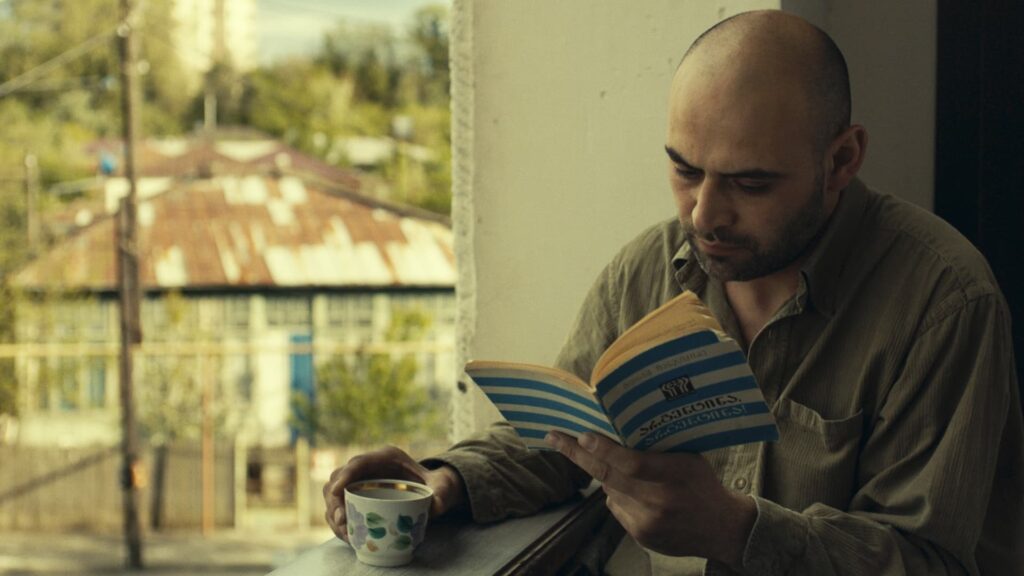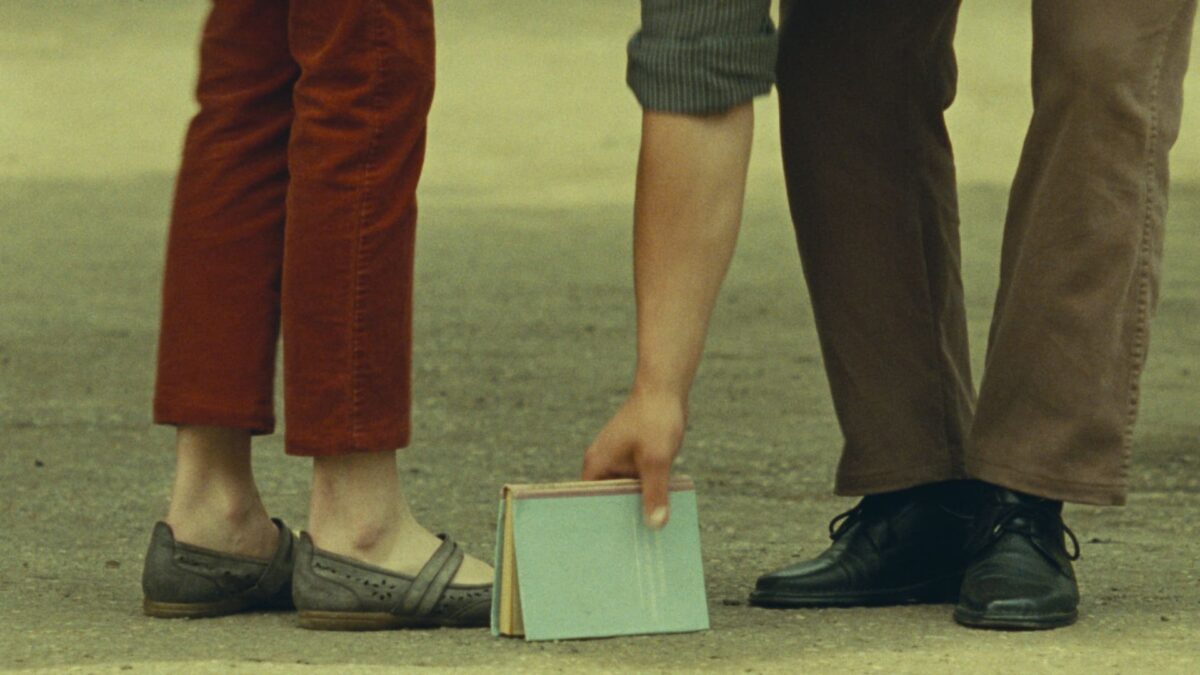Clouds, I guess?
Alexandre Koberidze’s Georgian slice-of-life, pseudo-silent, slow film aesthetic meets magical realism and romantic comedy in What Do We See When We Look at the Sky?, and the result is magnificent.
The film opens with a meet-cute between pharmacist Lisa and footballer Giorgi, who make plans to meet at a cafe the next evening. But something fantastical happens overnight that leaves the two disconnected, hunting for each other in a vast urban wilderness.
Over the course of the next two and a half hours, we hear almost no words spoken by Lisa or Giorgi, though there’s plenty of sound and music filling the soundscape. Instead, the film’s plot is largely progressed by narration, giving the film the feel of a silent epic.

Much like Koberidze’s debut feature, Let the Summer Never Come Again, this sophomore effort spends more of its runtime creating an urban panorama of life in motion than tracking the story’s actual characters. Thus the city Kutaisi, Georgia, shot on location, is as much a character as anyone else. What Do We See When We Look at the Sky? is not nearly as avant garde or anti-plot as Let the Summer Never Come Again, at least, and always feels like it has some narrative purpose, if not quite narrative thrust.
Koberidze and his cinematographer, Faraz Fesharaki, capture the energy of a busy city with visual grace. Lighting and compositions are immersive, and the editing often hypnotic. The sound design is excellent, too: Diegetic sounds of kids playing soccer, games airing on speakers, and cheering are omnipresent.
Like the best fairy tales, What Do We See When We Look at the Sky? has an interesting but simple narrative, but full of rich images and moments you can deconstruct for as much symbolism as you please. Issues of self-identity and vulnerability and perception of others within relationships are literalized with the movie’s magic twist. It is a spiritual, self-actualization quest as much as it is a romantic one.

And for a film that so often feels like it’s drifting weightlessly, the ending comes together pretty miraculously. I was moved much more than I thought for possible for something so assembled with such elegant simplicity.
The biggest issue is, of course, that it’s 2.5 hours for a very light story. It’s borderline slow cinema. The movie’s sprawling effect could have probably been achieved to nearly the same effect with 45 minutes trimmed. But I love what it’s doing enough to give it an effusive recommendation to those who dig pensive, low-dialogue art films.
Is It Good?
Exceptionally Good (7/8)
Dan is the founder and head critic of The Goods. Follow Dan on Letterboxd. Join the Discord for updates and discussion.

